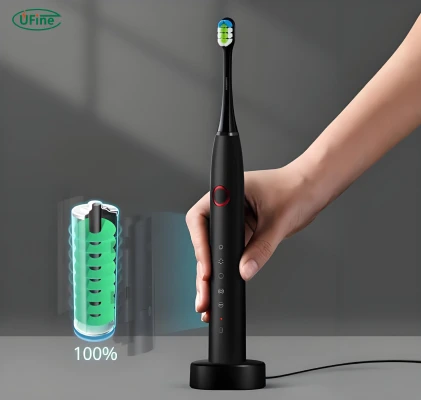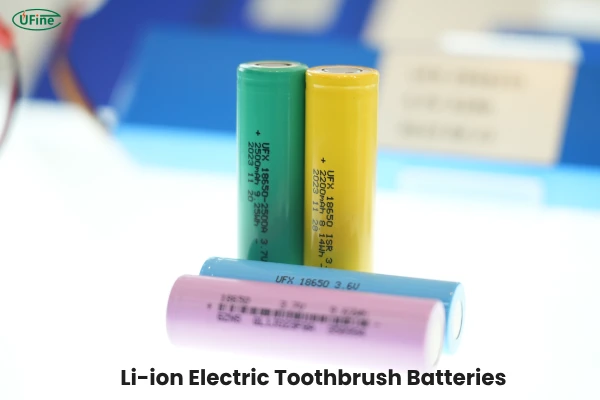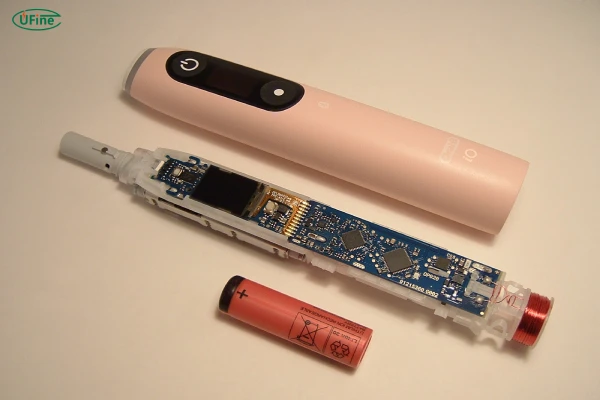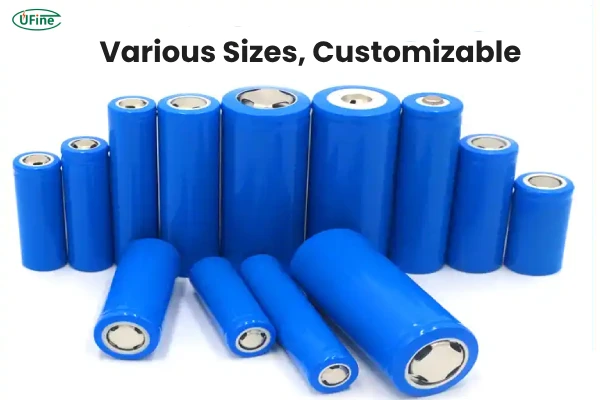If you’re developing electric toothbrushes or sourcing parts, the battery isn’t something you can treat as an afterthought. In fact, it’s the core of your product’s reliability, user satisfaction, and long-term success. So how do you find a reliable electric toothbrush battery manufacturer in a market full of options? The answer isn’t simple—but it’s absolutely worth understanding.
Let’s dive deep into what makes a battery manufacturer trustworthy, and how to choose the right one for your brand.
Part 1. Why battery quality isn’t optional—it’s everything
Imagine a customer buys your electric toothbrush. It looks great, it works well for a few weeks—then it starts losing charge fast. Eventually, it won’t turn on. The likely cause? A low-quality battery.
The battery directly affects:
- Power output (torque, speed, vibration consistency)
- Charging speed and efficiency
- Run time between charges
- Overall product lifespan
More importantly, poor-quality batteries can pose serious safety risks—overheating, leaking, or even swelling. That’s why you must choose a battery supplier who sees quality as non-negotiable.
Part 2. What types of batteries are used in electric toothbrushes?
Understanding your battery options helps you ask the right questions later. Electric toothbrushes typically use three main types of rechargeable batteries:
NiMH (Nickel-Metal Hydride):
- Cost-effective and safe
- Bulkier and heavier
- Lower energy density
- Shorter cycle life
Li-ion (Lithium-Ion):
- High energy density
- Lightweight
- Long cycle life
- More sensitive to heat and overcharging (needs protection circuit)
LiFePO₄ (Lithium Iron Phosphate):
- Extremely safe and stable
- Long cycle life (up to 2,000 cycles)
- Slightly larger in size
- Costlier but ideal for premium products
While Li-ion and LiFePO₄ dominate the modern electric toothbrush market, your final choice depends on your product’s size, features, and price point. That’s why you need a manufacturer who can customize battery solutions—not just sell off-the-shelf units.
Part 3. What really sets a good manufacturer apart?
Let’s get to the heart of it. A good battery manufacturer isn’t just someone who “makes batteries.” They should be a partner in your product’s success. Here are the top traits to look for:
- Certifications like ISO9001, CE, UL, and RoHS
- Battery customization services tailored to your voltage, capacity, and size needs
- A strong portfolio or track record in personal care or medical devices
- Willingness to provide technical documentation, datasheets, and test results
- Real quality control protocols, not just claims
For instance, Ufine Battery, a custom lithium battery manufacturer based in China, is one of the few companies that offer complete OEM/ODM solutions. We provide a wide range of batteries—from ultra-thin polymer cells to high-rate, high-temperature lithium packs. Whether your toothbrush needs a compact cell or a fast-charging, high-capacity battery, Ufine can build exactly what you need.
Contact Ufine Battery now to discuss your custom battery needs and take your product to the next level.
Part 4. Spotting red flags: when to walk away
Sometimes, you’ll come across suppliers who look professional—on paper. But dig a little, and warning signs appear. Watch out for these:
- Unrealistically low prices without breakdowns
- No third-party testing reports or internal quality tests
- Vague answers when you ask about materials, cycle life, or safety features
- No physical address, unclear contact information, or sketchy websites
- Pressure to close deals quickly
These are signs you’re dealing with a reseller or unreliable supplier—not an actual manufacturer.
Part 5. Dive into their technical capabilities
This part can’t be skipped. Ask questions that dig into how the batteries are made and tested:
- How many charge/discharge cycles can your battery handle?
- What is the self-discharge rate?
- Can you provide overcharge, short circuit, and thermal protection?
- Do you offer UN38.3 certification for transport?
If the answers are unclear, or the supplier can’t back them up with documentation, move on. Battery manufacturing is a science, and your supplier should speak the language fluently.
Part 6. Customization is no longer optional
Let’s be honest—your electric toothbrush isn’t like everyone else’s. Maybe it’s thinner. Maybe it needs to last 30 days on a single charge. Maybe it needs a special connector or shape.
That’s why custom battery design is so valuable. A top-tier supplier will offer:
- Custom voltages and capacities
- Unique shapes or slim designs for tighter enclosures
- PCB integration for safety and control
- Prototyping and engineering support
Ufine Battery, for example, has a full R&D team dedicated to customization. We’ve built lithium batteries for everything from beauty tools to industrial sensors. So when it comes to electric toothbrushes, we understand not just the tech—but the business behind it.
Interested in discussing your battery needs with Ufine? Contact us and get expert help for your product.
Part 7. Large-scale factory or small-scale partner?
You might think bigger is always better. But in the battery world, the best choice depends on your stage of business:
- Big factories offer high volume and stable output—but may ignore small or custom orders.
- Specialized manufacturers give you more flexibility, faster feedback, and often better service.
Startups and emerging brands benefit greatly from nimble, mid-sized manufacturers that can grow with them—like Ufine Battery, who provides both high-efficiency production and the agility to adapt quickly.
Ufine Battery has independent intellectual property rights and has won many production patent certificates and reports.
Part 8. Quality control
Ask every manufacturer this: “Can I see your QC process?”
Quality control is not just about testing the end product. It includes:
- Raw material inspection
- In-process testing (capacity, voltage, IR)
- Final product inspection
- Aging tests under simulated usage
Also, insist on certifications like UN38.3, MSDS, and RoHS compliance. If a supplier won’t share their processes, they probably don’t have one.
Ufine Battery has passed multiple certifications such as CQC, KC, UL, CB, UN38.3, CE, etc., and continues to test its products for relevant environmentally friendly substances such as the ROHS Directive, REACH Regulation PFOS Directive, etc.
Part 9. Shipping, safety, and regulations—Don’t overlook this
Shipping batteries is complicated. Lithium batteries are regulated due to their fire risk. If your supplier doesn’t know how to package and certify them correctly, your shipment could get delayed or rejected.
Check that your supplier:
- Offers UN38.3 certification
- Provides MSDS and other safety documentation
- Uses proper anti-static and shock-proof packaging
- Understands air/sea shipping regulations
Ufine Battery is fully compliant with international shipping standards and regularly exports worldwide. This ensures your supply chain runs smoothly.
Part 10. After-sales support: the hidden dealbreaker
What happens if your batteries don’t perform as promised? Or if you need tech support during production?
This is where after-sales support matters. A responsible supplier will:
- Provide warranty coverage
- Offer technical support and troubleshooting
- Replace or refund faulty units
- Respond quickly and clearly
Ufine Battery has built a solid reputation for long-term support, especially for international clients. We don’t just ship boxes—we stay with you throughout your journey.
Part 11. Final thoughts
Finding a reliable electric toothbrush battery manufacturer isn’t just a procurement task. It’s a strategic business decision.
The right partner helps you build better products, reduce returns, and protect your brand reputation. So take your time. Ask smart questions. Look beyond price and into quality, customization, and service.
And if you’re looking for a trusted partner who combines technical expertise, flexibility, and custom battery solutions, consider working with Ufine Battery.
Our deep experience in custom lithium batteries—including Li-ion, LiFePO₄, and ultra-thin designs—makes them a great fit for electric toothbrush brands that want more than just “a battery.”
Related Tags:
More Articles
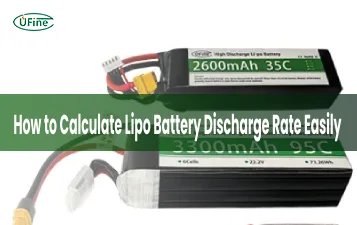
LiPo Battery Discharge Rate Guide & Calculation Tips
Understand LiPo battery discharge rates, C-ratings, and how to calculate max current. Essential guide for RC, drones, and electronics users.
High‑Capacity 3S LiPo Batteries: 5000 mAh vs. 10000 mAh
Compare 3S LiPo 5000mAh vs 10000mAh batteries by weight, power, and use. Find the best fit for your drone, RC car, or boat setup.
Top 5 Applications for Small 3S LiPo Batteries
Small 3S LiPo batteries power drones, RC gear, wearables, and robotics with high energy and low weight. Making them ideal for compact electronics projects.
Building and Charging Your Own 3S LiPo Pack: A Step‑by‑Step Guide
Learn how to build, balance, and charge a 3S LiPo battery pack safely at home with this complete DIY guide for hobbyists and beginners.
How to Choose the Right LiPo Battery Plug Type?
Discover the best LiPo battery plug types, how to choose them, and expert tips for safe usage, soldering, and maintenance.
